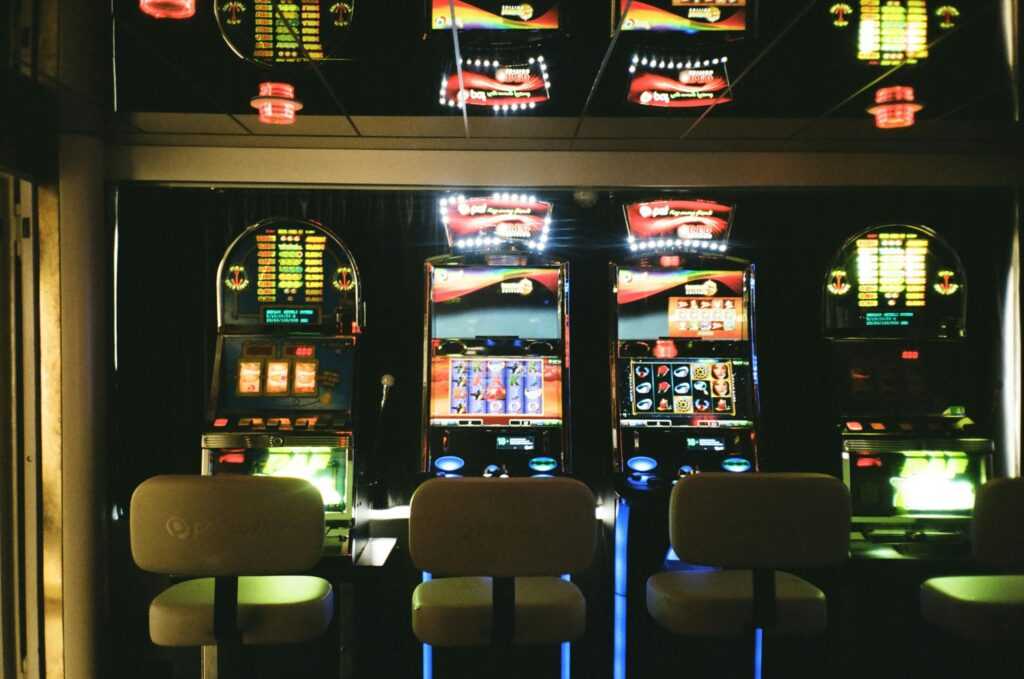The Impact of Gambling on Mental Health
Psychological Effects of Chronic Gambling
Chronic gambling can lead to significant psychological issues. Persistent gambling behavior often results in addiction, where individuals lose control over their ability to gamble.
This compulsive need to gamble disrupts daily life, leading to increased stress and anxiety.
According to the American Psychiatric Association, gambling disorder is classified as an addictive behavior, similar to substance addiction.
Individuals battling chronic gambling frequently report feelings of depression. They experience mood swings and irritability due to financial strains and social isolation.
Over time, the unrelenting pursuit to recoup losses exacerbates these emotional problems, creating a vicious cycle of gambling and psychological distress.
Correlation Between Gambling and Mental Disorders
Research indicates a strong correlation between gambling and several mental disorders.
Studies published in the Journal of Gambling Studies found that individuals with gambling disorders often present symptoms of mood and anxiety disorders.
This correlation suggests that those struggling with mental health issues are more susceptible to developing gambling problems.
Moreover, gambling often coexists with substance abuse. Data from the National Epidemiologic Survey on Alcohol and Related Conditions show a notable overlap between gambling addiction and alcoholism.
This dual diagnosis complicates the treatment process, making recovery more challenging and requiring integrated intervention strategies.
The relationship between gambling and pre-existing conditions also poses significant risks.
People with pre-existing conditions such as depression or anxiety may gamble to escape their mental health issues, but this behavior often leads to worsening symptoms.
Ensuring these individuals receive comprehensive care is crucial in addressing both gambling addiction and underlying mental health disorders.
Recognizing Signs of Gambling Addiction
Behavior Changes and Warning Signs
Gambling addiction manifests through clear behavioral changes. Frequent secrecy about gambling activities stands out as a major sign.
If someone constantly downplays time spent gambling, it indicates a deeper issue.
Increased irritability and restlessness when not gambling show withdrawal symptoms. This aligns with how addicts behave when deprived of their addiction.
Preoccupation with gambling also serves as a warning. If a person frequently talks about gambling or makes plans around it, addiction might be developing.
Financial problems often accompany gambling addictions. Unexplained debts or missing funds raise red flags. Another indicator includes neglecting responsibilities.
If gambling interferes with work or family obligations, addiction might be the cause.
When to Seek Professional Help
Intervening early often prevents further mental health deterioration due to gambling addiction. Professional help becomes crucial when behavioral changes persist.
If irritability, anxiety, or restlessness occur routinely, seeking help is imperative.
Additionally, if one notices financial strain consistently linked to gambling, a professional should be consulted. This helps mitigate escalating debts and their psychological impact.
Persistent preoccupation with gambling, affecting daily tasks and relationships, calls for intervention. Ignoring the signs might lead to severe depression or anxiety disorders.
Consulting experts provide strategies for both gambling cessation and addressing underlying mental health issues.
Early professional intervention offers the best chance for recovery and restored mental well-being.
Strategies to Mitigate the Impact of Gambling

Practical Steps to Control Gambling Behavior
- Introducing effective strategies can help control gambling behavior.
- Establishing clear limits on time and money spent gambling is essential.
- Utilizing budgeting tools or apps can help manage finances and prevent overspending.
- Avoiding high-risk environments, such as casinos or online gambling platforms, reduces temptation.
- Engaging in alternative activities can provide healthy distractions.
- Pursuing hobbies like sports, reading, or volunteering offers productive ways to spend time.
- Building a strong support network is crucial. Family and friends can offer encouragement and accountability.
If needed, joining support groups like Gamblers Anonymous provides a structured environment for recovery.
Therapy and Rehabilitation Options
Therapy and rehabilitation can address underlying mental health issues linked to gambling. Cognitive-behavioral therapy (CBT) proves effective.
It helps identify and change compulsive gambling behaviors. CBT teaches coping mechanisms and problem-solving skills.
Residential rehabilitation programs offer intensive support. These programs provide a structured environment, reducing access to gambling.
They often include individual and group therapy sessions. Outpatient programs are suitable for those needing flexible support while maintaining daily responsibilities.
Access to hotlines and online counseling can reach those unable to attend in-person sessions. These resources provide immediate assistance and guidance.
Early intervention in therapy offers the best chance for long-term recovery and improved mental health.
Therapists can tailor treatment plans to individual needs. Including family therapy can address the broader impact of gambling.
It strengthens relationships damaged by gambling behavior and improves overall family dynamics.
The Role of Support Systems
Family and Peer Support
Family and friends play a crucial role in mitigating the negative impact of gambling on mental health. They provide the emotional backing needed to cope with stress and anxiety associated with gambling addiction.
Close relationships can help monitor behavioral changes, offering intervention when necessary. Supportive family members, like:
- Spouses
- Siblings
- Parents
Can contribute to a more nurturing environment conducive to recovery.
Friends can help distract from gambling urges by engaging in healthy, alternative activities.
Online and Community Resources
- Various online and community resources offer crucial support for individuals dealing with gambling addiction.
- Websites like Gamblers Anonymous provide instant access to advice, counseling, and community forums.
- Various community centers host support groups, providing face-to-face interaction for those who prefer it.
- Hotlines, such as the National Problem Gambling Helpline (1-800-522-4700), offer immediate assistance and referral services for more intensive treatments.
- Online counseling platforms bring professional help within reach, facilitating convenience and privacy for those reluctant to seek in-person treatment.


 Alpha Ricketts - Senior Analyst Alpha Ricketts serves as Senior Analyst at Jackpot Journey Spot, bringing valuable insights into market trends and game strategies. With a background in data analysis and a passion for understanding the nuances of gaming behavior, Alpha helps shape the site’s focus on responsible gaming by providing data-driven insights that keep readers ahead of the curve.
Alpha Ricketts - Senior Analyst Alpha Ricketts serves as Senior Analyst at Jackpot Journey Spot, bringing valuable insights into market trends and game strategies. With a background in data analysis and a passion for understanding the nuances of gaming behavior, Alpha helps shape the site’s focus on responsible gaming by providing data-driven insights that keep readers ahead of the curve.
